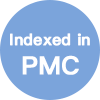REFERENCES
1. Civeira F, Arca M, Cenarro A, Hegele RA. A mechanism-based operational definition and classification of hypercholesterolemia. J Clin Lipidol 2022;16:813-21.
2. Ference BA, Ginsberg HN, Graham I, et al. Low-density lipoproteins cause atherosclerotic cardiovascular disease. 1. Evidence from genetic, epidemiologic, and clinical studies. A consensus statement from the European Atherosclerosis Society Consensus Panel. Eur Heart J 2017;38:2459-72.
3. Wang G, Huang W, Xia Y, Xiong Z, Ai L. Cholesterol-lowering potentials of Lactobacillus strain overexpression of bile salt hydrolase on high cholesterol diet-induced hypercholesterolemic mice. Food Funct 2019;10:1684-95.
4. Wang Y, Ai Z, Xing X, et al. The ameliorative effect of probiotics on diet-induced lipid metabolism disorders: a review. Crit Rev Food Sci Nutr 2024;64:3556-72.
5. Jones ML, Tomaro-Duchesneau C, Martoni CJ, Prakash S. Cholesterol lowering with bile salt hydrolase-active probiotic bacteria, mechanism of action, clinical evidence, and future direction for heart health applications. Expert Opin Biol Ther 2013;13:631-42.
6. Schneider KM, Albers S, Trautwein C. Role of bile acids in the gut-liver axis. J Hepatol 2018;68:1083-5.
7. Pushpass RG, Alzoufairi S, Jackson KG, Lovegrove JA. Circulating bile acids as a link between the gut microbiota and cardiovascular health: impact of prebiotics, probiotics and polyphenol-rich foods. Nutr Res Rev 2022;35:161-80.
8. Stellaard F, Lütjohann D. Dynamics of the enterohepatic circulation of bile acids in healthy humans. Am J Physiol Gastrointest Liver Physiol 2021;321:G55-66.
9. Joyce SA, MacSharry J, Casey PG, et al. Regulation of host weight gain and lipid metabolism by bacterial bile acid modification in the gut. Proc Natl Acad Sci U S A 2014;111:7421-6.
10. Li F, Jiang C, Krausz KW, et al. Microbiome remodelling leads to inhibition of intestinal farnesoid X receptor signalling and decreased obesity. Nat Commun 2013;4:2384.
11. Kliewer SA, Mangelsdorf DJ. Bile acids as hormones: the FXR-FGF15/19 pathway. Dig Dis 2015;33:327-31.
12. Chen K, Zhou X, Zhao J, et al. Comparative genomics of Lactobacillus johnsonii reveals extensive intraspecific genetic variation. Food Biosci 2023;56:103190.
13. Foley MH, Walker ME, Stewart AK, et al. Bile salt hydrolases shape the bile acid landscape and restrict Clostridioides difficile growth in the murine gut. Nat Microbiol 2023;8:611-28.
14. Wang Q, He Y, Li X, et al. Lactobacillus reuteri CCFM8631 alleviates hypercholesterolaemia caused by the paigen atherogenic diet by regulating the gut microbiota. Nutrients 2022;14:1272.
15. Dang D, Li B, Ding M, et al. Limosilactobacillus mucosae FZJTZ26M3 prevents NAFLD in mice through modulation of lipid metabolism and gut microbiota dysbiosis. Food Sci Human Well 2024;13:1589-601.
16. Ding M, Li B, Chen H, et al. Bifidobacterium longum subsp. infantis regulates Th1/Th2 balance through the JAK-STAT pathway in growing mice. Microbiome Res Rep 2024;3:16.
17. Chen X, Chen Y, Stanton C, et al. Dose-response efficacy and mechanisms of Orally administered Bifidobacterium breve CCFM683 on IMQ-induced psoriasis in mice. Nutrients 2023;15:1952.
18. Dang D, Liu X, Chen H, Zhao J, Chen W, Yang B. In silico, in vitro and in vivo safety assessment of three Limosilactobacillus mucosae strains for probiotic candidates. Food Biosci 2024;57:103462.
19. Huang F, Zheng X, Ma X, et al. Theabrownin from Pu-erh tea attenuates hypercholesterolemia via modulation of gut microbiota and bile acid metabolism. Nat Commun 2019;10:4971.
20. du Toit M, Franz CM, Dicks LM, et al. Characterisation and selection of probiotic lactobacilli for a preliminary minipig feeding trial and their effect on serum cholesterol levels, faeces pH and faeces moisture content. Int J Food Microbiol 1998;40:93-104.
21. Yoon H, Lee Y, Park H, Kang HJ, Ji Y, Holzapfel WH. Lactobacillus johnsonii BFE6154 ameliorates diet-induced hypercholesterolemia. Probiotics Antimicrob Proteins 2023;15:451-9.
22. Teixeira LD, Torrez Lamberti MF, DeBose-Scarlett E, et al. Lactobacillus johnsonii N6.2 and blueberry phytophenols affect lipidome and gut microbiota composition of rats under high-fat diet. Front Nutr 2021;8:757256.
23. Xu J, Zhou Y, Cheng S, et al. Lactobacillus johnsonii attenuates liver steatosis and bile acid dysregulation in parenteral nutrition-fed rats. Metabolites 2023;13:1043.
24. Zheng X, Huang F, Zhao A, et al. Bile acid is a significant host factor shaping the gut microbiome of diet-induced obese mice. BMC Biol 2017;15:120.
25. Song Z, Feng S, Zhou X, Song Z, Li J, Li P. Taxonomic identification of bile salt hydrolase-encoding lactobacilli: modulation of the enterohepatic bile acid profile. Imeta 2023;2:e128.
26. Zhu H, Zhao F, Zhang W, et al. Cholesterol-lowering effect of bile salt hydrolase from a Lactobacillus johnsonii strain mediated by FXR pathway regulation. Food Funct 2022;13:725-36.
27. Zhai Q, Liu Y, Wang C, et al. Lactobacillus plantarum CCFM8661 modulates bile acid enterohepatic circulation and increases lead excretion in mice. Food Funct 2019;10:1455-64.
28. Liu Y, Chen K, Li F, et al. Probiotic Lactobacillus rhamnosus GG prevents liver fibrosis through inhibiting hepatic bile acid synthesis and enhancing bile acid excretion in mice. Hepatology 2020;71:2050-66.
29. Liang C, Zhou XH, Gong PM, et al. Lactiplantibacillus plantarum H-87 prevents high-fat diet-induced obesity by regulating bile acid metabolism in C57BL/6J mice. Food Funct 2021;12:4315-24.
30. Yao L, Seaton SC, Ndousse-Fetter S, et al. A selective gut bacterial bile salt hydrolase alters host metabolism. Elife 2018;7:e37182.
31. Wahlström A, Sayin SI, Marschall HU, Bäckhed F. Intestinal crosstalk between bile acids and microbiota and its impact on host metabolism. Cell Metab 2016;24:41-50.
32. Sayin SI, Wahlström A, Felin J, et al. Gut microbiota regulates bile acid metabolism by reducing the levels of tauro-beta-muricholic acid, a naturally occurring FXR antagonist. Cell Metab 2013;17:225-35.









